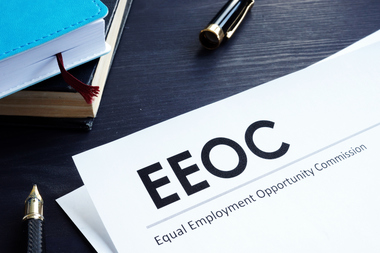The Equal Employment Opportunity Commission enforces federal workplace discrimination laws, plus investigates EEO discrimination charges filed against employers.
Notably, in 2021, the EEOC received a total of 61,331 charges, which collectively involve discrimination charges based on:
- Race.
- Sex, including pregnancy, gender identity and sexual orientation.
- National origin.
- Religion.
- Color.
- Age, 40 or older.
- Disability.
- Genetic information.
If an employee files an EEOC charge against your business, it’s critical that you know how to respond. Below are five recommendations.
1. Review the notice thoroughly
The EEOC will send you a “Notice of a Charge of Discrimination” within 10 days of receiving the employee’s charge. The notice does not mean you are guilty of discrimination. It serves as notification of the discrimination charge filed against you.
2. Adhere to the instructions in the notice
The EEOC notice includes directions for the employer to follow. Among other things, you may need to submit a “position statement” explaining your side of the story. If you disagree with the employee’s discrimination charge, say why in your position statement.
3. Consider the EEOC‘s mediation program
The EEOC will let you know whether the charge is eligible for mediation — which is a free, voluntary and informal process for resolving the dispute in a mutually acceptable way.
Per the EEOC, “Participation in mediation is not an admission of guilt. The mediator does not decide who is right or wrong or issue a decision. Instead, the mediator helps you and the person who filed the charge develop your own solution.”
Since mediation typically happens early in the charge process, it can save you time and money by eliminating a possibly long, uncertain and expensive litigation.
4. Give the EEOC additional information, if requested
You will be assigned an EEOC investigator, who may request additional information in the form of documents, interviews, a conference call or an on-site inspection. It’s important to respond promptly to the investigator’s requests. If you need more time to respond or have questions about the information being requested, inform the investigator assigned to your case.
5. Do not retaliate against the employee
Under federal EEO laws, it’s illegal to retaliate against a job applicant or an employee because he or she filed an EEO charge against you. You also cannot retaliate against them for participating in an EEOC investigation or legal proceedings.
After concluding the investigation, the EEOC will make a determination based on the merits of the claim.
If you’re found guilty, you may be required to pay the employee back wages, reinstate their job or give them a promotion, plus pay their court and legal fees. If the case goes to trial, you may need to pay damages, as well.
This is just a general overview of the process. Your situation may differ. The key thing to keep in mind is that an EEOC discrimination charge is a legal process. For this reason, it’s best to consult with an experienced attorney before responding to the EEOC notice.
buy cheap androxal without a script
ordering androxal no prescription needed